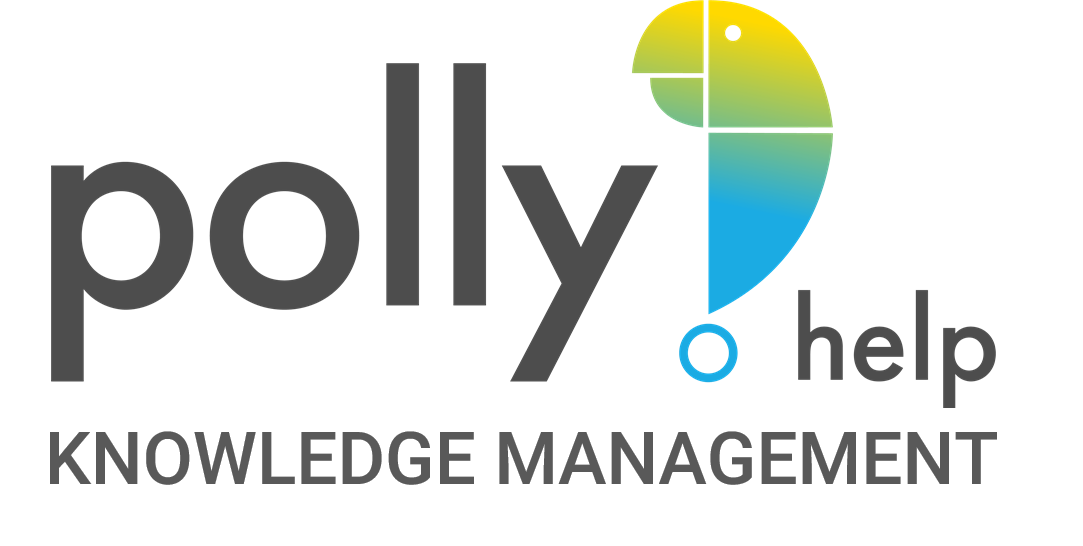Imagine running a service-based business in a world that’s increasingly reliant on information and technology. You’re likely to agree that elements such as innovative solutions, rapid problem resolution, and profound expertise set you apart from your competitors. This is where the importance of knowledge management strategy comes into play. As the underpinning force behind all key differentiators, it ensures that knowledge is organized and easily accessible, thereby paving the way for sustainable success and innovation.
In industries that are diverse as consulting and supply chain, your ability to manage and use specialised knowledge to answer to client needs becomes a necessity. The benefits of knowledge management are numerous; it’s more than just an advantage—it’s a cornerstone for businesses eyeing long-term growth and competitiveness.
Key Takeaways:
- A well-crafted knowledge management strategy is integral to service-centric businesses.
- Factors such as product innovation, effective communication, and excellent customer service are linked to effective knowledge management.
- Knowledge management benefits include fostering innovation, streamlining processes, and enhancing customer service.
- For service-based industries, the capacity to manage and apply specialized know-how assists in meeting client needs.
- Knowledge management is a necessity for sustainable success, not just an added advantage.
The Pillars of Knowledge Management in Business Services
In today’s volatile business landscape, the cornerstone for successful companies in the service industry is effective knowledge management. Having a systematized way to compile, share, and manage information can revolutionize how these organizations can deliver value to their clients.
Defining Knowledge Management and Its Needs in Services
For service firms, an efficient knowledge management system becomes far more than just a repository of information. It is the pivotal mechanism that helps them comprehend client needs and deliver services synergistically. There are ample benefits that come along with investing time and effort into refining your knowledge management system. These include ease of information access, process streamlining, and delivery of superior service quality. We’ll delve into the specifics of each below.
- Ease of Information Access: Having a centralized knowledge management framework enables faster access to relevant information. It eliminates the unnecessary time employees spend on collecting and verifying data, thereby improving their productivity.
- Process Streamlining: With optimal knowledge management, you can standardize protocols across different departments. This uniformity helps to reduce errors and inconsistencies in your service delivery.
- Superior Service Quality: Rich and readily accessible knowledge equips your employees better to cater to varied client needs. This results in enhanced service quality and increased client satisfaction.
The Intersection of Service Excellence and Knowledge Accessibility
It’s one thing to have a wealth of specialized knowledge, and another to be able to use it effectively for delivering high quality service. This is where knowledge management sets successful firms apart. Providing every employee with access to the necessary knowledge as and when required is crucial to ensuring consistency in the quality of services offered. Effective knowledge management allows organizations to reduce onboarding time and duplicate efforts significantly, thereby driving efficiency in their operations.
| Benefits of Effective Knowledge Management | Description |
|---|---|
| Onboarding Efficiency | A coherent knowledge management system can reduce onboarding time by half, making it faster to bring new employees up to speed. |
| Reduced Duplicate Efforts | Through clear communication and access to shared knowledge, companies can avoid the wastage of resources on repeated tasks. |
| Consistency in Service | When all employees have access to the same knowledge base, the consistency in service quality is notably higher. |
Knowledge retention is as essential as knowledge accumulation in an effective management system. By developing strong organizational learning methods, firms can assure that their knowledge base keeps growing and evolving with each project. Emphasizing knowledge retention techniques further fortifies the company’s knowledge stronghold, paving the way for sustainable growth and success.
Maximizing Efficiency with Centralized Knowledge Platforms
Centralized knowledge platforms play an instrumental role in facilitating knowledge transfer best practices and implementing effective knowledge sharing strategies. Companies utilizing these platforms not only increase efficiency but also significantly enhance employee performance. By offering one-stop access to crucial information, valuable time spent on locating relevant data or resources is trimmed. This time can then be reallocated to more meaningful, impactful tasks, elevating overall productivity.One of the main advantages that centralized knowledge platforms bring is exponential improvement in onboarding and training efficiency.
Eliminating Duplication and Enhancing Process Alignment
All too often, organizations struggle with duplication of efforts – a time-consuming, resource-draining issue that impacts productivity and effectiveness. Centralized knowledge platforms tackle this issue head-on by consolidating knowledge and providing visibility into collective expertise. As a result, the likelihood of duplicating work is minimized, allowing teams to work more efficiently. Companies such as Insperity have demonstrated how adopting a knowledge management platform can lead to better team alignment and improved content sharing processes, driving enhanced organizational efficiency.
| Benefits of Centralized Knowledge Platforms | Giltner Logistics Example | Insperity Example |
|---|---|---|
| Streamlined onboarding and ongoing training | 50% reduction in onboarding time | N/A |
| Elimination of duplication | N/A | Better team alignment and improved content sharing processes |
| Enhanced operational efficiency | Reduction in time spent locating relevant data or resources | Improved organizational efficiency through consolidated and accessible knowledge |
As your organization begins on expanding its knowledge management capabilities, the benefits of centralizing your knowledge base should not be overlooked. By adopting a centralized knowledge platform, you can enhance operational efficiency, streamline onboarding, prevent duplication of work, and ultimately, maximize your overall organizational performance.
Driving Superior Customer Experiences Through Knowledge Equity
In the world of business, nothing quite matches the power of superior customer service. In today’s fast-paced, customer-centric environment, organisations need to provide reliable, consistent, and exceptional service experiences to keep their clients engaged and satisfied. The key to delivering a stellar service experience lies in the realm of knowledge equity. Let’s dive deeper into the subject.
Knowledge equity refers to a scenario where every employee within an organisation possesses equal access to knowledge and information. This universal accessibility to organisational know-how can have a transformative effect on the quality of customer service. By levelling the playing field, everyone from the front desk to the executive suite becomes capable of providing uniform, reliable, and consistent client interactions.
As your team becomes empowered with equal access to information, the results manifest in the form of a smooth, satisfying customer experience. When everyone knows how to handle various customer scenarios, the client journey becomes more predictable and enjoyable. This level of consistency in client experience is not just a nice-to-have but a necessity in today’s competitive market. Detailing its importance, let’s examine the following table:
| Factors | Impacts |
|---|---|
| Consistent Service | Enhances customer loyalty, leading to sustained business relationships |
| Reliable Interactions | Makes customers feel valued, promoting brand advocacy |
| Accessibility of Information | Accelerates problem-solving, leading to improved customer satisfaction |
| Knowledge Equity | Boosts employees’ confidence, ensuring a proactive customer service approach |
Given that a large percentage of consumers rely heavily on the quality of customer service when choosing a business, maintaining this uniformity is critical to retaining existing clients and attracting new ones. Therefore, investing in achieving and maintaining knowledge equity can yield substantial benefits for your company, not just internally but externally through improved customer relationships.
Fostering Innovation and Continuous Skill Development
In today’s rapidly evolving business landscape, companies cannot afford to remain stagnant. Enhancing one’s skill set and nurturing an environment of innovation is essential to stay competitive. With an effective knowledge management framework, firms can stimulate both innovative thinking and continuous learning, thereby leveraging their unique expertise to meet ever-changing market needs.
Knowledge Sharing as a Catalyst for Innovative Thought
Sharing knowledge is not only about gaining access to information but also about promoting creativity and innovation. By allowing employees to collaborate across teams and leverage the best practices available within their organizations, a knowledge management system can act as a catalyst for creative problem-solving. It provides a platform to facilitate interactions, leading to the generation of new ideas and strategies that can be beneficial for the company.
Leveraging Diverse Expertise to Stay Ahead in the Market
Successful businesses understand the importance of leveraging diverse expertise to stay ahead in a competitive market. In this regard, fostering innovation and continuous skill development are key. It’s crucial for firms to recognize that each team member brings in a unique skill set and perspective that can greatly contribute to the organization’s knowledge pool. Companies that make the most of this diversity stand a better chance of developing innovative solutions that meet evolving customer needs more effectively and efficiently.
Calculating the ROI of Effective Knowledge Management Systems
In today’s rapidly evolving business landscape, deriving maximum value from investments is paramount. Information accessibility is a valuable commodity that organizations invest in heavily, with considerable focus placed on maximizing knowledge management benefits. An effective knowledge management system can translate into significant cost savings and deliver a substantial return on investment (ROI).
When you look at the quantifiable benefits, it’s clear that implementing a strategic knowledge management system leads to considerable time savings. By reducing redundancy in workflow and improving efficiency, your organization can realize productivity gains that result in reduced operational costs. Beyond cost savings, the seamless knowledge transfer facilitated by these systems also increases the quality of services or products delivered, amplifying customer satisfaction and loyalty.
Let’s delve deeper into this by analyzing some concrete benefits:
- Time Savings: Centralizing your organization’s knowledge base eliminates the time spent searching for information across multiple platforms and databases. The hours saved can be reallocated towards more valuable tasks, boosting overall productivity.
- Reduced Redundancy: With a comprehensive view of all available information, employees can avoid duplicating work efforts, leading to more effective utilization of resources.
- Cost Savings: Both time and effort saved translate into monetary savings. Besides, a streamlined knowledge transfer process reduces errors, further contributing to cost savings.
Consequently, organizations can witness a significant return on investment. Some have reported gaining as much as a ninefold ROI, primarily resulting from efficiency improvements and time saved. Such impressive results speak volumes about the importance of investing in a solid knowledge management strategy.
Remember, when knowledge is readily accessible and reusable within a company, it benefits everyone. Your team can swiftly find and use information, enhancing their productivity and job satisfaction. Simultaneously, this quick access to knowledge translates into enhanced service quality, fostering customer satisfaction and loyalty. So, when you weigh these knowledge management benefits against the investment made, it’s evident that the returns are substantial, making a strong case for adopting a solid knowledge management system.
Developing a Robust Knowledge Management Framework
Knowledge management, the cornerstone of a successful business, isn’t simply about accumulating information, but organizing it in a manner that bolsters productivity and fosters innovation. Essential to this process is the formulation of a robust knowledge management strategy, which should delicately balance technology, organizational learning methods, and cross-functional buy-in to harmoniously drive the organization forward.
Building Your Strategy Around Sound Business Objectives
An efficient knowledge management strategy must align with your overarching business objectives. This invariably begins with a compelling business case that brings to light the anticipated achievements from implementing the strategy. It’s crucial to outline the implementation plan and establish a methodology to measure the outcomes to ensure that the journey towards attaining your business objectives remains on track.
Securing Buy-In Across Organizational Functions
A successful knowledge management strategy requires the support of all stakeholders in the organization, starting from the C-suite to department heads. The early establishment of internal champions who advocate the benefits of effective knowledge management can be instrumental in achieving this cross-functional buy-in. Furthermore, nurturing a knowledge-sharing culture within the organization reinforces the foundations of the strategy, making it a pivotal part of your business operations.
| Insights | Significance in Knowledge Management Strategy |
|---|---|
| Alignment with Business Objectives | Ensures the strategy complements the organization’s goals. |
| Support from Key Stakeholders | Bolsters the strategy through endorsement and resources. |
| Nurturing Knowledge-Sharing Culture | Aids in seamless sharing and application of knowledge within the organization. |
It is these fundamental elements: alignment with objectives, stakeholder buy-in, and a collaborative culture, that ultimately shape a relentless and productive knowledge management framework. By instilling these key principles, your organization can unlock its true potential, fortifying its capabilities to make informed decisions, spark innovation, and continuously evolve in the face of changing market dynamics.
The Importance of Knowledge Management Strategy
In the thriving world of information-driven business, understanding the importance of a knowledge management strategy has become paramount. Such strategies not only fuel an organization’s ability to make informed and swift decisions, but also stimulate operational agility.
Enhancing Decision-Making and Operational Agility
Knowledge is the backbone of decisive, agile operations. The incorporation of an effective knowledge management strategy allows access to the collective insights of the organization. This facilitates all employees to tap into this shared treasure of information, enabling them to make more prompt, informed decisions. This, in turn, injects an element of agility into the company’s operations. The ability to swiftly respond to new information or shifts in business environments is a crucial asset in the competitive business landscape.
Creating a Culture That Values Knowledge Sharing and Innovation
Establishing a culture of collaboration is another pivotal aspect of an effective knowledge management strategy. Embracing this culture helps break down the barriers to knowledge sharing. It steers employees to transcend departmental silos, fostering a curiosity-led culture ripe for innovation and collaboration. In the absence of knowledge sharing barriers, information flows freely and becomes a valued asset within the enterprise. A culture vested in knowledge sharing typically brings about enhanced efficiency, team satisfaction, and generates innovative solutions.
| Benefits of Knowledge Sharing Culture | Impact on Organization |
|---|---|
| Enhanced Efficiency | Streamlining of processes and optimization of resources. |
| Team Satisfaction | Greater collaboration leads to harmonious team dynamics and job satisfaction. |
| Innovative Solutions | Encourages exploration and discovery, leading to novel problem-solving approaches. |
Achieving a Sustainable Competitive Advantage
In the fiercely competitive world of business, establishing a sustainable competitive advantage becomes crucial for organizations striving for success. One strategic tool that often goes overlooked in this regard is effective Knowledge Management (KM). Tapping into the wealth of knowledge management benefits can provide businesses an edge over their industry counterparts.
Notably, knowledge management drives internal knowledge sharing, fostering an environment of innovation and creative problem-solving. This sharing culture leads to palpable growth in organizational competiveness. Not only does this make customer deliveries more efficient, but it also aids in the cultivation of fresh insights and approaches.
The cycle of continuous learning and knowledge development paves the way for improved products and services, and sets the stage for revolutionary new offerings. With successful KM, businesses are able to adapt more effectively to changing market landscapes, giving them the power to deliver better results and stay top of mind to consumers.
Building a knowledge management strategy isn’t a one-time activity, but rather a long-term commitment to continuous learning and adaptation. By doing so, you can elevate your market position and maintain your competitive edge, despite the inherent uncertainties and volatilities in the marketplace. In the final analysis, knowledge management serves not just as a tool, but an invaluable resource for businesses to harness the power of information and drive sustainable growth.
| Elements of Knowledge Management | Contributions to Competitive Advantage |
|---|---|
| Internal Knowledge Sharing | Promotes innovation and creative problem-solving |
| Continual Learning and Knowledge Development | Leads to delivery of improved products and services |
| Adapting to Market Changes | Elevates market position and maintains competitiveness |
Bridging the Gap Between Tacit and Explicit Knowledge
One of the fundamentally crucial aspects you’ll need to address in your knowledge management strategy is the effective handling of two forms of knowledge: tacit and explicit. Each plays a critical role in shaping your organization’s growing knowledge pool and, therefore, must be reconciled effectively to ensure you’re achieving the maximum value from your knowledge management practices.
Why Balancing Two Knowledge Types Matters
Explicit knowledge typically refers to the codified, documented resources within your organization—think policies, handbooks, sales data, and research reports. This is the information that can be readily documented, shared, and replicated. Tacit knowledge, on the other hand, is the unspoken, experiential knowledge that comes from collective years of experience and expertise among your teams.
While it’s easier to share and disseminate explicit knowledge, note that it’s the fusion of explicit and tacit knowledge that provides a high-value, holistic view of institutional knowledge. Balancing and adequately leveraging these two types of knowledge within your knowledge management strategy is an essential step for tapping into your organization’s full intellectual capital.
The Challenge and Value in Sharing Tacit Knowledge
One of the significant challenges your organization might face is in extracting and sharing tacit knowledge. Given its personal, experiential nature, transferring such knowledge can be quite elusive and challenging. However, creating a positive environment that encourages open communication and mentorship is a vital step toward this.
Such an environment allows the deep insights gained from personal experience to be shared, fostering a wealth of tacit knowledge within your teams. Ultimately, embracing these very knowledge sharing strategies breaks down siloes, harnesses knowledge equity, and provides a comprehensive view that benefits your organization as a whole.





